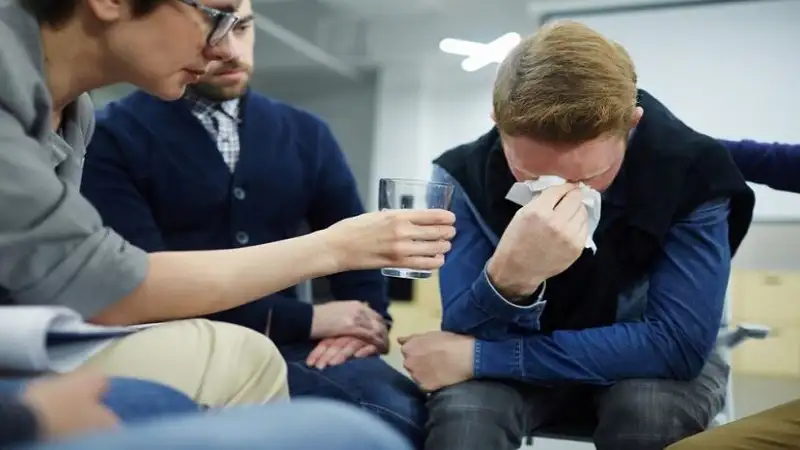Dengue fever, a viral disease transmitted by mosquitoes, has become a significant public health threat in Malaysia. With its rapid spread and severe health implications, it is crucial to be aware of the proper steps to take if bitten by a dengue-carrying mosquito. This article aims to guide you through these essential measures.
Recent data reveals a staggering increase in dengue cases, with infections rising by nearly 185%—from 13,650 reported cases between January and May 2022 to 25,283 during the same period in 2023. This troubling trend underscores the critical need to combat dengue outbreaks, especially in light of the reported fatalities, which increased from 7 deaths in 2022 to 24 in 2023 (Ministry of Health Malaysia 2023). Knowing what steps to take after a mosquito bite is vital for protecting your health. [1]
Image alt text: Woman keeping the plant pots clean to avoid the breeding of Aedes mosquitoes
What Causes Dengue Fever?
Dengue fever is a mosquito-borne viral disease caused by one of four related viruses. The primary culprits of transmission are Aedes mosquitoes, which become infected when they bite someone already carrying the dengue virus. Infected mosquitoes can then spread the virus to others through subsequent bites.
Once you recover from a specific dengue virus strain, you develop immunity to that particular strain but remain susceptible to the others. This makes subsequent infections potentially more severe, increasing the risk of developing severe dengue. [2]
Steps to Take if You Think You Have Been Bitten by a Dengue Mosquito
Dengue fever is a pressing concern in many regions. If you suspect you have been bitten by a mosquito in an area where dengue fever is common, it is essential to act thoughtfully. While you might not be able to confirm the bite’s origin immediately, here are the ways to stay proactive:
Watch for Symptoms
Symptoms of dengue typically develop 4 to 10 days after a mosquito bite. Keep an eye out for these indicators, which are crucial to identifying dengue symptoms in adults and kids:
- High fever (up to 104°F/40°C)
- Intense headaches
- Pain behind the eyes
- Muscle and joint discomfort
- Nausea and vomiting
- Skin rash
- Minor bleeding (such as nosebleeds or bleeding gums)
Be Aware of Severe Dengue Signs
Severe dengue, also known as dengue hemorrhagic fever, is a critical condition that can develop rapidly, often within 24 to 48 hours after a fever subsides. It poses significant risks and can lead to life-threatening complications if not addressed promptly. Recognizing the warning signs is crucial for timely intervention.
Key Warning Signs
- Intense Abdominal Pain:
Patients may experience severe stomach pain, which could indicate internal bleeding or organ distress. - Vomiting Blood or Blood in Stool:
This symptom suggests potential hemorrhage and requires immediate medical evaluation. Blood in vomit or stool can signify serious complications that need urgent attention. - Bleeding from Gums or Frequent Nosebleeds:
Increased bleeding tendencies, such as frequent nosebleeds or bleeding gums, are alarming signs of severe dengue. indicating platelet depletion and an increased risk of bleeding. - Extreme Fatigue, Irritability, or Restlessness:
Profound tiredness and changes in mood can signal the body’s struggle against severe dengue. Patients may appear unusually lethargic or agitated. - Persistent Vomiting:
Ongoing vomiting can lead to dehydration and should be taken seriously, especially in conjunction with other warning signs. - Altered Breathing Patterns:
Changes in how one breathes, including rapid or difficult breathing, could indicate fluid accumulation or respiratory distress. - Pale or Cool Skin:
Symptoms of shock, such as cold or clammy skin, can arise in severe cases. This may indicate inadequate blood flow to the skin and vital organs.
Immediate Action Required
If you experience any of these symptoms, especially after recovering from a fever, it is vital to seek emergency medical assistance immediately. Health professionals can provide the necessary interventions to manage severe dengue and prevent fatal outcomes.
Reduce the Risk of Further Mosquito Bites
Since dengue is transmitted by Aedes mosquitoes, which are most active during daylight hours, follow these preventive measures:
- Apply insect repellent registered with the EPA that contains DEET or other effective active ingredients.
- Wear long sleeves and long pants, especially during the day.
- Eliminate standing water around your home, where mosquitoes breed.
- Use mosquito nets while sleeping at night.
Stay Hydrated and Rest
Staying hydrated is essential to prevent dehydration. Drink plenty of water and consider electrolyte-rich options like coconut water or sports drinks to replenish lost nutrients. Also, make sure to get ample rest, as it helps your body recover more effectively.
Avoid Certain Pain Relievers
Steer clear of aspirin or ibuprofen, as these can heighten the risk of bleeding. Instead, acetaminophen (paracetamol) is generally recommended for managing fever and discomfort.
Treatment for Dengue Fever
While there is no specific treatment for dengue fever, managing symptoms is crucial. Pain relievers with acetaminophen are recommended, while aspirin should be avoided due to the risk of bleeding. Focus on staying hydrated and resting to support your recovery. If your condition worsens within 24 hours after your fever drops, seek immediate medical attention to prevent complications. [6]
Image alt text: Employee cleaning indoor plant to prevent an infection of Aedes mosquitoes
wiping the desk while holding a flower pot to keep mosquitoes away
When Should I Consult My Healthcare Provider?
Recognizing the need for medical attention can be crucial in managing dengue fever. If you live in or have recently traveled to dengue-affected areas, it is important to contact your healthcare provider at the first sign of symptoms. Early consultation ensures prompt care and can help prevent severe complications. [7]
Community Efforts to Reduce Dengue Risk
While individual protection is crucial, community-wide efforts play a significant role in controlling dengue outbreaks. Local authorities regularly engage in fogging to reduce mosquito populations. Communities can help by eliminating stagnant water, where mosquitoes breed, to further reduce the risk of dengue.[8]
Conclusion
Dengue fever remains a pressing health issue, particularly in regions like Malaysia where mosquito-borne illnesses are on the rise. With the recent surge in cases, understanding how to respond to a potential dengue mosquito bite is essential for safeguarding your health. By recognizing the symptoms, seeking timely medical advice, and implementing preventive measures—such as eliminating mosquito breeding sites and using effective repellents—you can actively contribute to combating the spread of dengue.
Community-wide efforts, including fogging and clean-up campaigns, play a crucial role in managing outbreaks and safeguarding public health. Reducing the risk of dengue fever in Malaysia depends mostly on keeping educated about it and being alert. Your health is very important, thus if you have any worries about dengue fever do not hesitate to see a healthcare professional.




